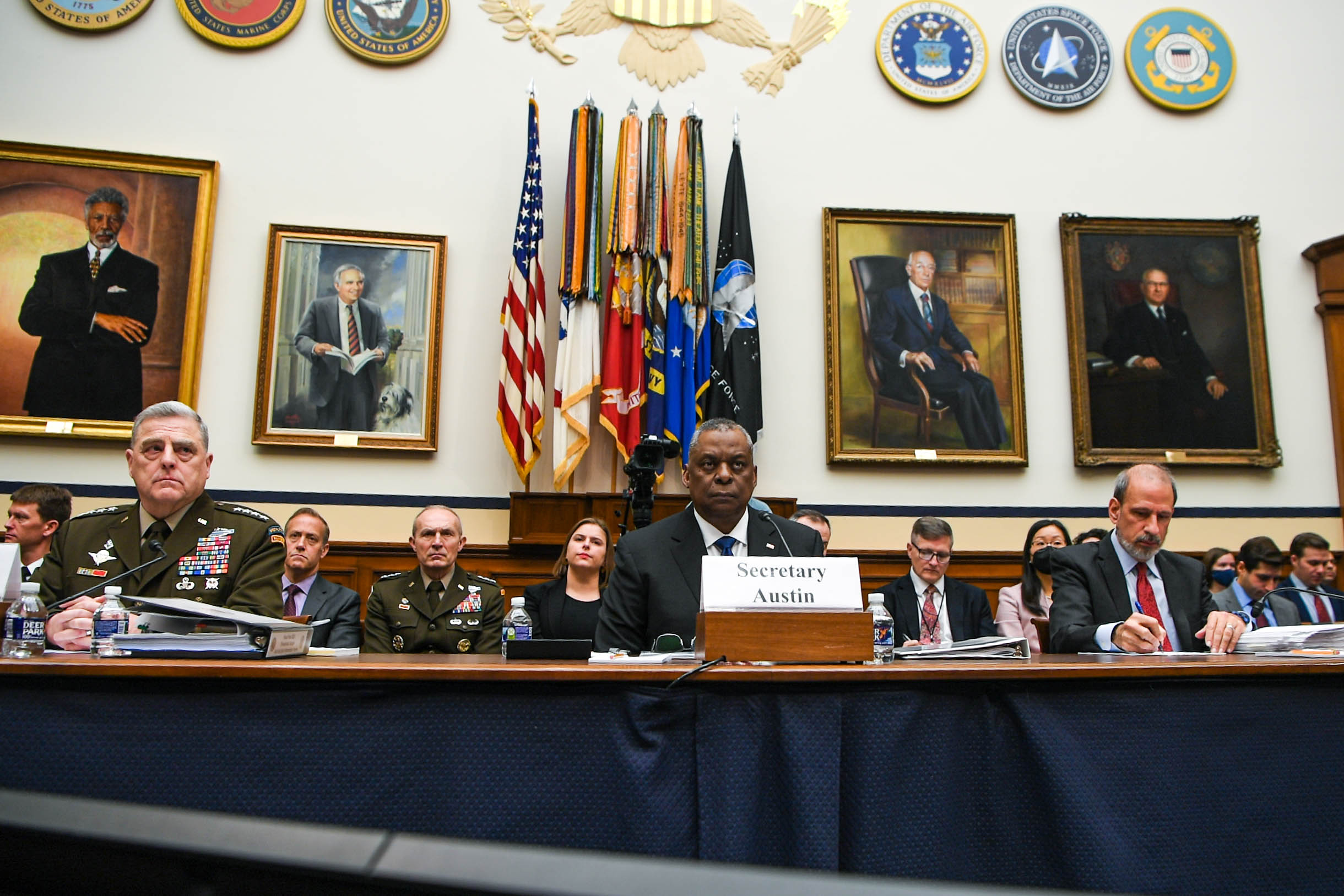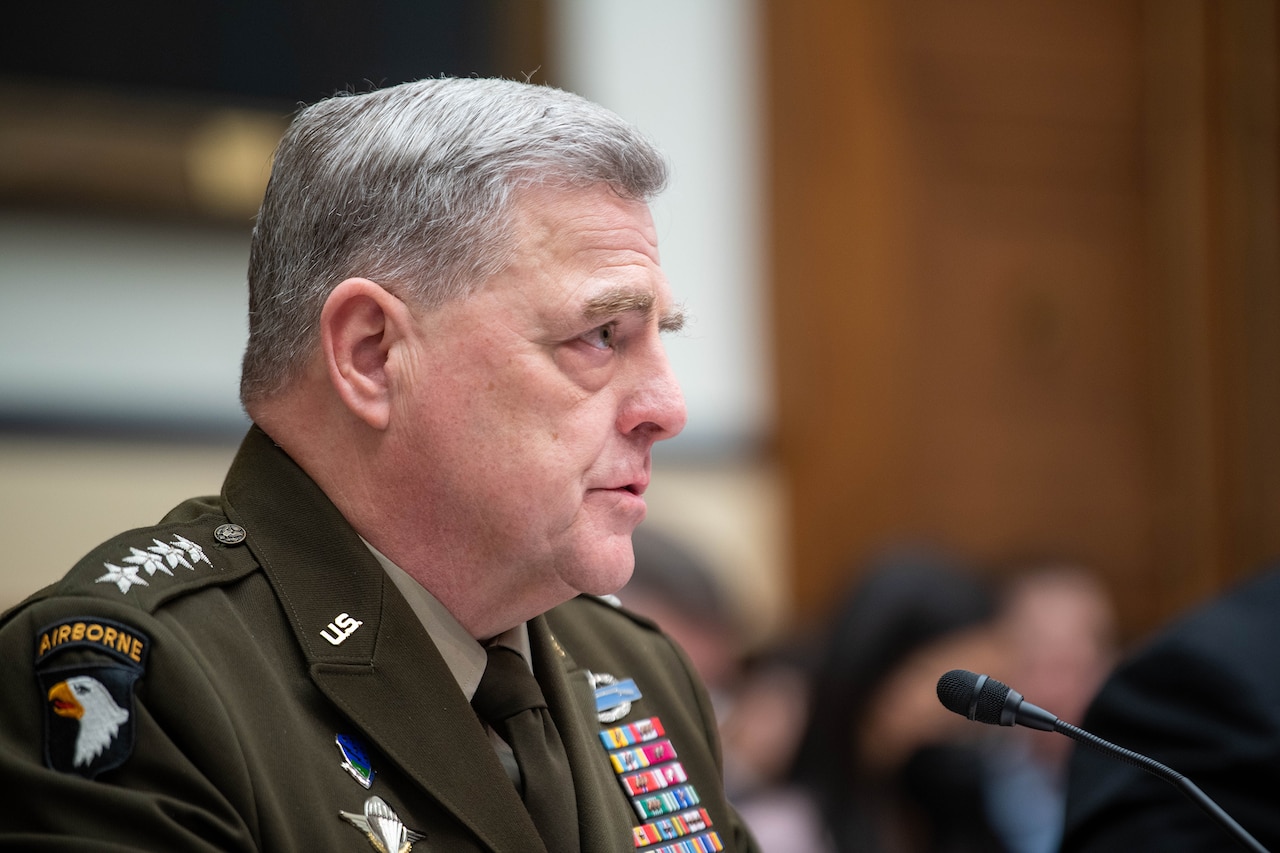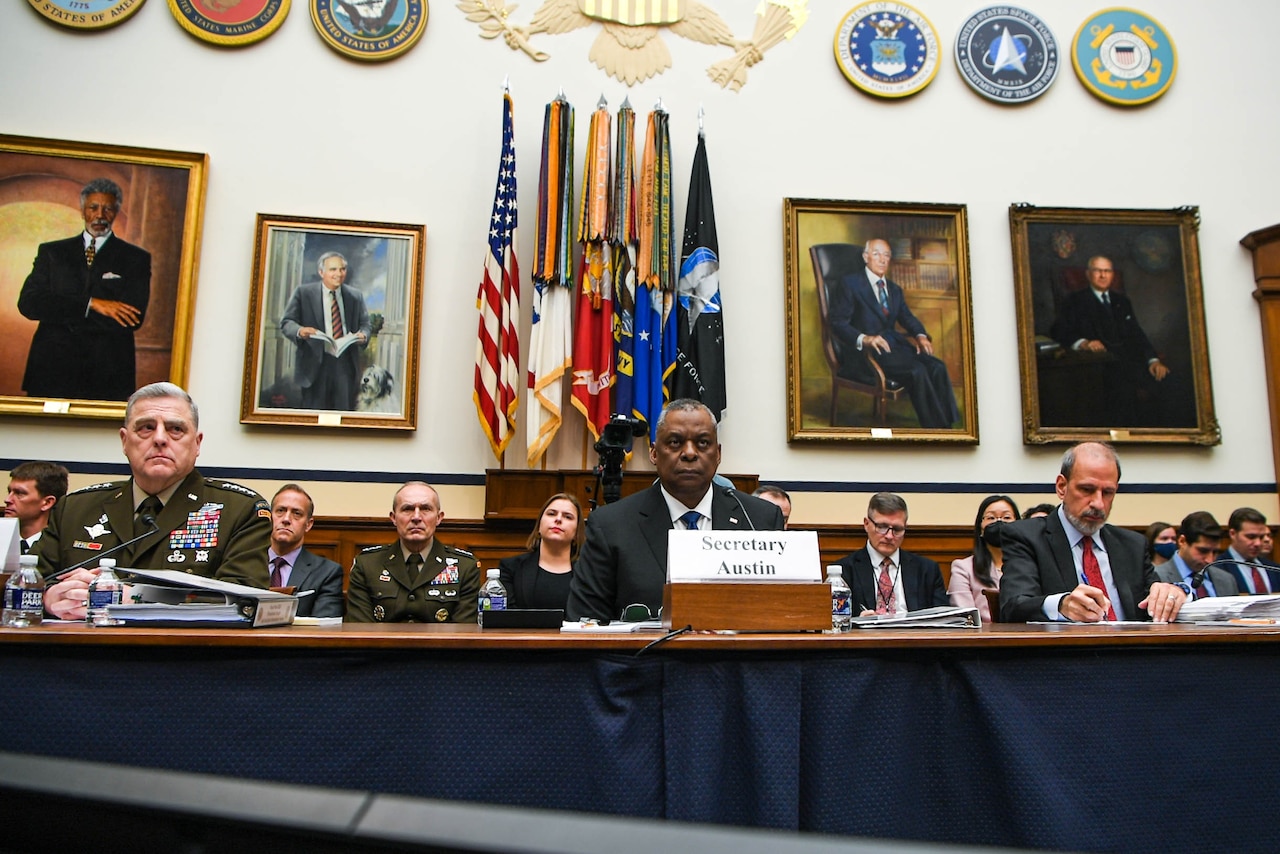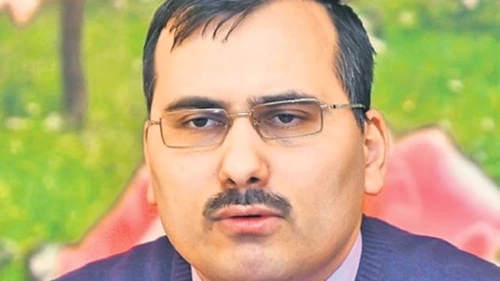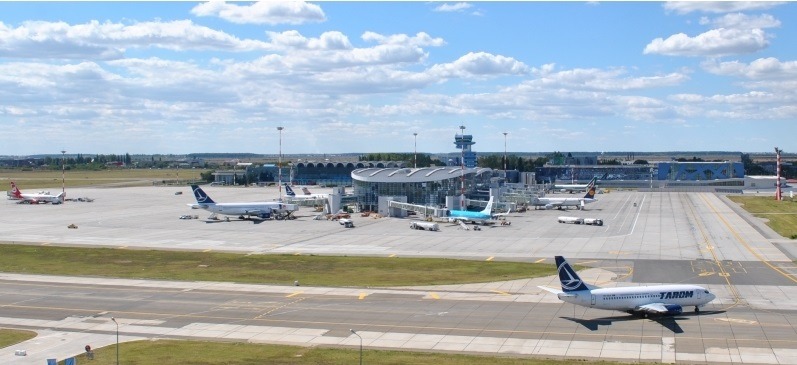Preşedintele Comitetului Întrunit al Şefilor de State Majore din Armata Statelor Unite, generalul Mark A. Milley, a declarat că SUA ar trebui să trimită mai multe trupe în Europa de Est pentru a descuraja agresiunea rusă.
În prima sa audiere în faţa Congresului de la începutul invaziei ruse în Ucraina, Milley a spus că trupele americane ar trebui să circule prin bazele create de partenerii NATO, mai degrabă decât să rămână staţionaţi acolo cu o capacitate permanentă.
“Sfatul meu ar fi să creaţi baze permanente, dar să nu staţionaţi permanent (forţe), astfel încât să obţineţi efectul permanenţei prin forţele de rotaţie care circulă prin baze permanente. Cred că mulţi dintre aliaţii noştri europeni, în special cei precum Ţările Baltice sau Polonia şi România şi din alte părţi – sunt foarte, foarte dispuşi să stabilească baze permanente. Ei le vor construi, vor plăti pentru ele”, a spus el.
El a continuat să numească războiul din Ucraina “cea mai mare ameninţare la adresa păcii şi securităţii Europei şi, probabil, a lumii în cei 42 de ani de când serveşte ţara în uniformă”.
“Insulele Pacificului şi plajele Normandiei au fost mărturie despre tragedia incredibilă care se întâmplă asupra umanităţii atunci când naţiunile vor puterea prin agresiune militară peste graniţele suverane”, a spus Milley.
“În ciuda atacului oribil asupra instituţiilor libertăţii, este încurajator să vezi lumea adunându-se şi să spună că niciodată nu trebuie să mai existe spectrul războiului în Europa”, a declarat el, conform BBC, preluat de news.ro
Milley Proposes Rotational Forces in Permanent Bases Across Eastern Europe
, DOD NEWS
The future of American presence on the eastern flank of NATO may revolve around rotational forces in permanent bases, the chairman of the Joint Chiefs of Staff told the House Armed Services Committee today.
“Actual presence is always a good deterrent relative to a given threat,” said Army Gen. Mark A. Milley.
Milley and Secretary of Defense Lloyd J. Austin III testified before the committee on the fiscal 2023 defense budget request.
The United States already employs rotational units in the Baltic Republics and Poland. Since the Russian invasion of Ukraine, more have deployed to the Baltics, Poland, Romania, Hungary and Slovakia. At the latest NATO Summit in March, leaders agreed to study the alliance’s troop posture in Europe.
Representatives asked Milley about the possibility of American troops based permanently in the front-line states with Russia. “My advice would be to create permanent bases but don’t permanently station,” he said. This gives the effect of permanence by cycling rotational forces through these permanent bases.
By doing that, the military does not incur the costs of family moves, post exchanges, schools, housing and so forth, Milley said.
“So, you cycle expeditionary forces through forward-deployed permanent bases,” the chairman said. “And I believe that a lot of our European allies, … are very, very willing to establish permanent bases.”
NATO is going through a process right now to examine the security architecture in Europe and how it should change given Russia’s invasion of Ukraine. Austin said U.S. leaders expect to work with leaders from NATO allies on the troop posture picture. “If NATO deems that it’s appropriate to change its footprint, then certainly we will be a part of that,” the secretary said. “Our goal is to make sure that we continue to reassure our allies and partners, especially those that are on the eastern flank, and especially our allies that are in the Baltic area or Baltic region.”
Austin believes the decision will be announced at the Madrid Summit this June.
The two men were also asked about lessons learned from the Russian invasion of Ukraine.
Austin said he speaks with his Ukrainian counterpart Defense Minister Oleksii Reznikov often. “We do want to make sure that we are meeting their needs, and we’re providing them the things that are most useful … to their fight,” he said. “The things that we have provided them have been very, very instrumental in their efforts to blunt the advance of an overwhelming Russian force.”
The anti-armor and anti-aircraft capabilities have been effective as has the use of unmanned aerial vehicles, Austin said. One unheralded capability is the use of secure, tactical radios that has allowed the Ukrainians to maintain command and control through the battles with Russian forces.
“So, we will continue to focus on those types of things that have been most useful to them, as well as emerging needs that the Minister of Defense identifies,” he said.
Austin also said that simply having a capability doesn’t mean it will be successful. “The Russians have significant mechanized capability,” he said. “But as you look at the techniques and tactics, procedures that they used, they were not very effective.
“So, you question the training, the leadership at the at the noncommissioned officer level and their ability to provide basic logistics to a force that size,” he continued. “Those are the things that have given them significant problems over the over the last several weeks.”
Austin also pointed to the failure of the Russians to link air and ground units effectively.
“I think, because the Russians have not been effective in using their armor, it does not mean that armor is ineffective on the battlefield going forward,” he said. “It means that they were ineffective because of the things that they failed to do in this fight.”
Milley pointed to the importance of intelligence and intelligence sharing.
Strong leadership from the national to the tactical level is of critical importance, and Milley praised Ukrainian President Volodymyr Zelenskyy for his leadership in the crisis. He also highlighted the captains, lieutenants and NCOs at the tactical level. “Ukraine has been trained by the United States since 2014,” he said. “And they have given me feedback personally saying that that training has been quite effective in terms of the concepts of mission command, distributed junior level leadership, [and the] development of an NCO Corps.”
The Ukrainian military has junior personnel who are encouraged to use initiative. This is not present in the Russian army, Milley said.
The general called Russia’s invasion of Ukraine “the greatest threat to peace and security of Europe and perhaps the world in my 42 years of service in uniform.”
President Vladimir Putin’s unnecessary war threatens not only European peace and stability, but global peace and stability, he said. “The islands of the Pacific and the beaches of Normandy bore witness to the incredible tragedy that befalls humanity when nations seek power through military aggression across sovereign borders,” Milley said. “Despite the horrific assault on the institutions of freedom, it is heartening to see the world rally and say never again to the specter of war in Europe.”
He told the representatives that the military stands ready to do whatever is directed.
Milley said that China, as the pacing challenge to America, requires the U.S. military to maintain competitive overmatch in all the domains of war, cyber space, land, sea and air.
“The United States is at a very critical and historic geostrategic inflection point,” he said. “We need to pursue a clear-eyed strategy of maintaining the peace to the unambiguous capability of strength relative to China or Russia.”
This requires the U.S. military to simultaneously maintain readiness today and modernize the force for the future. “If we do not do that, then we will be risking the security of future generations, and I believe this budget is a major step in the right direction,” he said.

